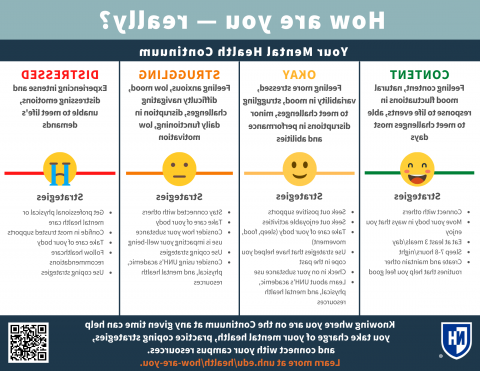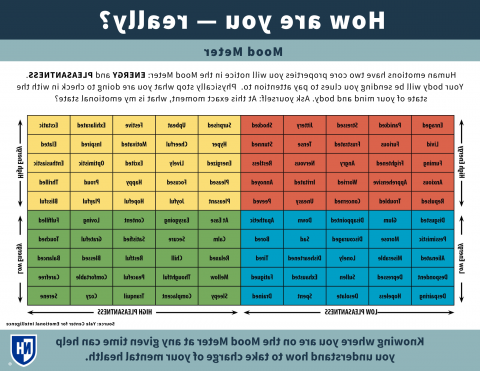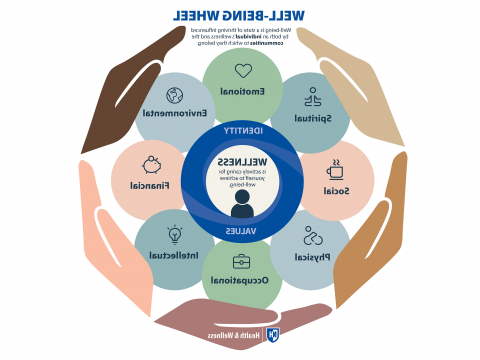- Students (coming soon)
- 教师工具包
- Families (coming soon)
“你好吗?”?" is more than a greeting. It's a check-in that lets people know you care.
Instead of answering, "I'm good, how are you?", what would happen if we all gave honest responses, and really listened to each other's answers?
Wildcats, check in with yourselves and each other. Reach out for support when you need it.
新! 学生项目:
你好吗?真的吗?
“How are you” is more than a greeting. It’s a check-in that lets people know you care. 和, when you respond to the greeting, it’s a way for you to check-in with yourself and authentically share what you’re experiencing.
As part of the How are you — really? 运动, we’ve created an educational program to help students better understand and care for their emotional wellness and mental health. As a result of this program, students will be able to...
- Explain the differences and symptoms between stress, anxiety, and depression;
- Utilize the 情绪表 as an emotional wellness check-in tool to name their mood;
- Utilize the 心理健康 Continuum (MHC) as a tool to access their mental health status to determine if they are content, 好吧, 苦苦挣扎的, 或不良;
- Identify and use inner resources and campus resources to support their mental health wherever they are on the MHC.
This program is 50 minutes and is presented by staff or student facilitators from 健康 & 健康 and/or Psychological and Counseling 服务 (PACS). Opportunities for knowledge attainment, 自我反省, 组织处理, and skill building are provided.
自我评估工具

Mental health lies on a continuum between content and distressed, and it is normal to experience a wide range of emotions between the two. Knowing where you fall on the continuum at any given time can help you understand and respond to your needs and ask for help.

Are you actually "good"? 或“很好”? There are lots of other ways to answer the question, "How are you?" Use the 情绪表 to dive deeper and build your emotional vocabulary.

幸福之轮 is a check-in tool that allows you to better understand what is going well and what may be challenging. Ask yourself: How can I align my values with my choices? How do my identities, strengths, and experiences affect my wellness? How is my community supporting my wellness? How am I contributing to others’ wellness?
Where to Find Support at UNH
- 包瑞德将军中心
- 校园娱乐
- Career and Professional 服务 (CAPS)
- Center for Academic Resources (CFAR)
- Chaplain and Spiritual Life Association
- 社区标准
- 餐厅 & ID办公室
- Off-Campus Engagement & Fraternity and Sorority Life (FSL)
- 健康 & 健康
- 住房 & 住宅生活
- Memorial Union Building (MUB) & 学生活动
- 军事 & Veteran 服务 (MVS)
- Office of 社区, Equity, & 多样性
- Office of International Students & 永利app新版本官网地址(ois)
- Psychological and Counseling 服务 (PACS)
- Sexual Harassment and Rape Prevention Program (SHARPP)
- Student Accessibility 服务 (SAS)
- Your Academic Advisor or Counselor
事件 & Workshops for 幸福
即将举行的活动!
查看更多
